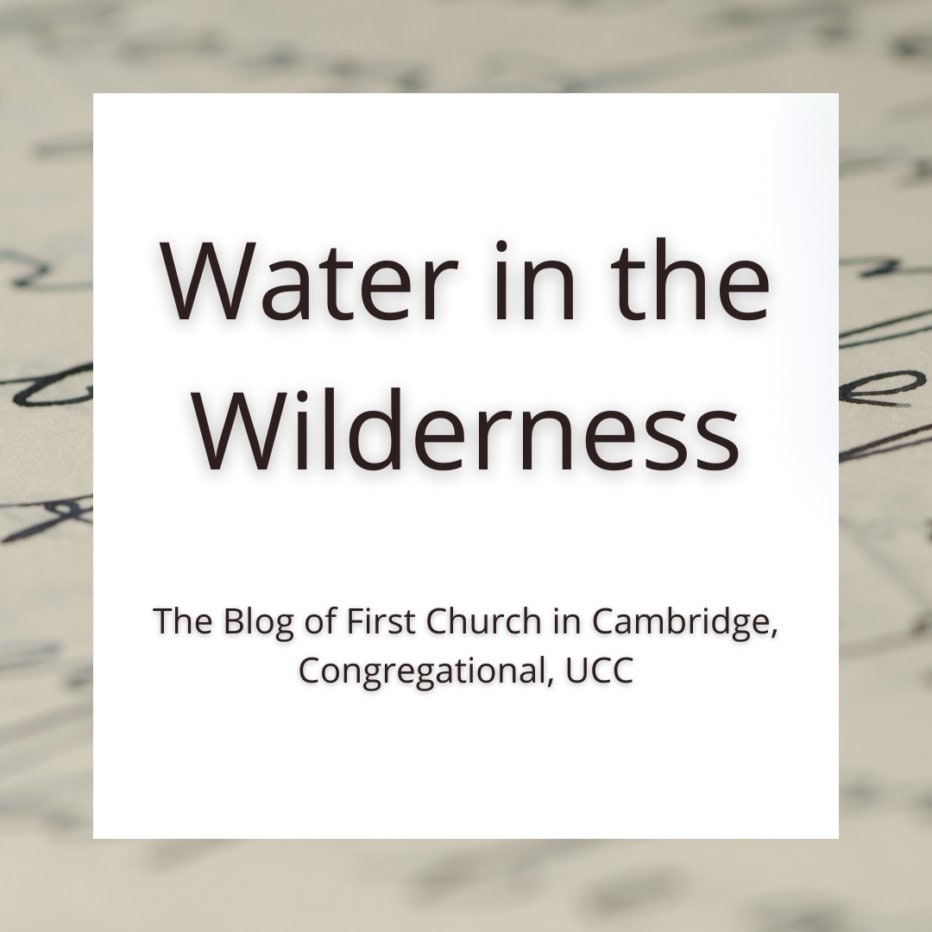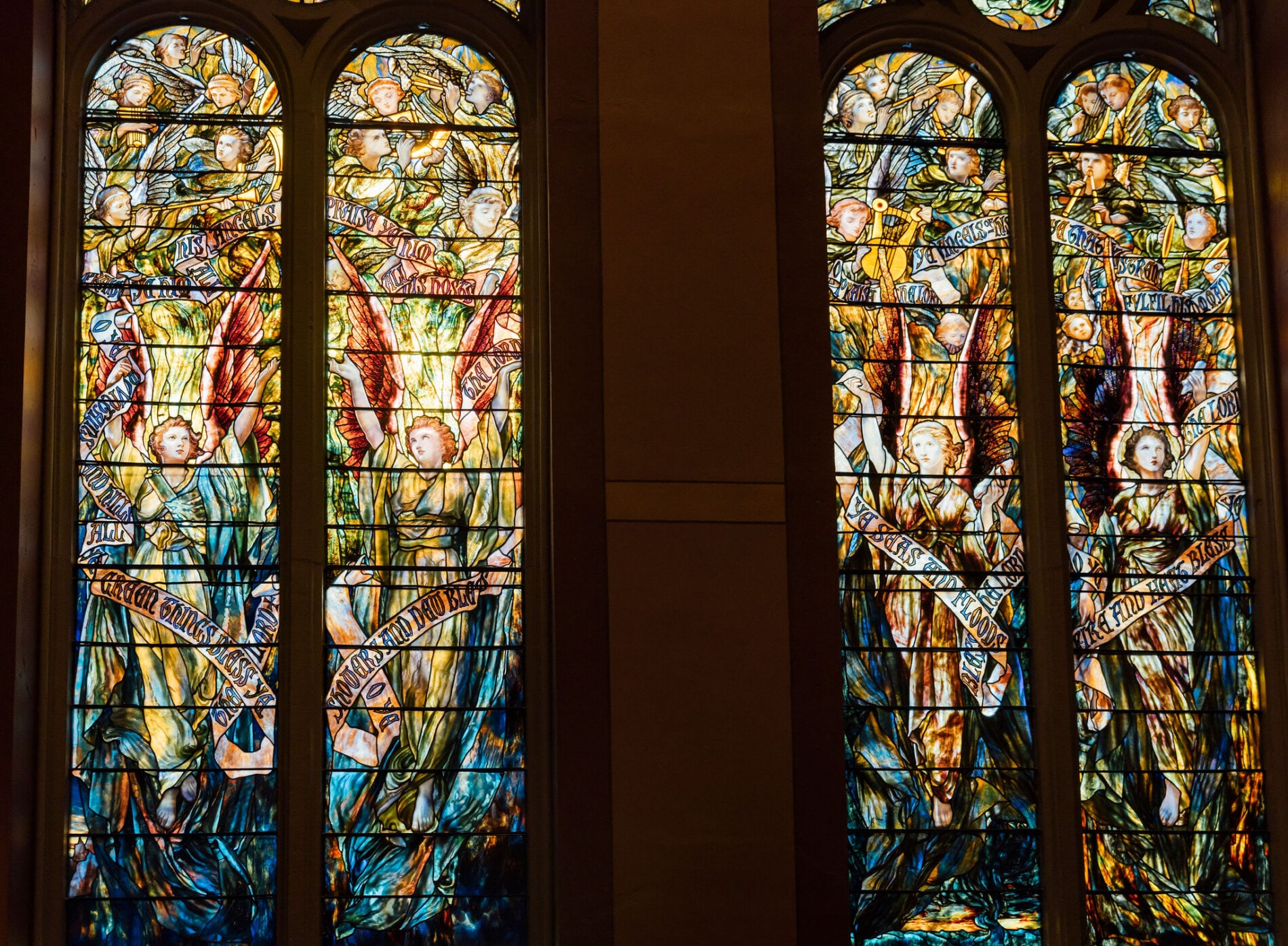
INSIDE OUT: A Homeless Ministries Reflection
This week’s post is brought you by Our Shelter Director Jim Stewart and our Minister of Street Outreach, Rev. Kate Layzer.
Chairs on the church lawn. Lines of neighbors stretching down the block, waiting for a meal. Out in the open, on dry Friday afternoons, tables of neatly arranged clothes and toiletries. These programs aren’t new: First Church has been offering shelter, support, and resources to neighbors on the street since the 1980s. Right now, we just find ourselves doing part of our work a bit more publicly. As one of our ministers put it, “the pandemic turned the church inside out.”
Members of the community have noticed and responded—writing checks, signing up to help with food, asking to volunteer. They are seeing a part of the church that was always there, but that has been mostly invisible, carried out behind closed doors. Now the walls of the house have fallen away, revealing the life of the inhabitants to the stares of passers-by.
There’s something appropriate about a program like the Friday Café, which aspires to build solidarity between affluent and less-affluent neighbors, being forced out of our walls to learn to live on the street. In the past, the church’s way of offering hospitality was to invite people IN. When the pandemic forced us to shift operations into the open air, we joined our community in the place many of them spend most of their time—outdoors.
There’s not much poetry about this situation for our guests, though. They’ve lost access to the few indoor spaces that were truly theirs. The rawness of this time of “exile” from our indoor Café life of sharing and conversation reminds us urgently of why programs like ours matter so much: not just because of material needs, but because people need community and belonging. As the city epidemiologist, Anna Kaplan, put it to me as we pondered what safe reopening would look like, “The need to gather is also a public health consideration!”
For now, that gathering is still happening outdoors on the lawn. It’s not safe to eat together—yet. But that day will come. For now, we’re out in public—visible, intrusive—reminding the community that its work isn’t finished yet, extending an invitation to join the journey toward healing and liberation.
This Sunday we will be celebrating individuals and organizations doing transformative work with and on behalf of our unhoused neighbors.
First Church Shelter will be presenting the 2021 Mitch Snyder Awards October 31. This year’s recipients are:
- Ms. Tehya Johnson, Boston Healthcare for the Homeless; Tehya, a nurse practitioner, has been among those bringing life saving and affirming service and treatment to the unhoused women and men struggling to survive on the streets of Boston’s “mass and cass” neighborhood. In addition to offering a basic act of mercy, she has lent her voice and experience to efforts being made to educate and challenge public officials about what is needed in order to bring real hope and change to “Mass and Cass.”
- The Tuesday Meal Program, First Parish in Cambridge; Following a pandemic mandated shut down, the women and men of First Parish took action to restore their Tuesday evening meals program as soon as it was safe and healthy to do so. Members of their community among the first to volunteer at the public shower program when it opened on Church Street and continue to do so at its current location.
- Mr. Joe Finn, Massachusetts Housing and Shelter Alliance; for four decades, in local, state and regional settings, Joe has committed himself to a life of selfless and courageous service for others. As an elected official in the city of Quincy; or as an advocate and lobbyist for unhoused families and individuals in the Commonwealth of Massschusetts, Joe has welded together the ideals of crucified love and effective public action.
- The Harvard Square Churches Meal Program, Cambridge; for nearly forty years, the Thursday meals program has provided the poor and unhoused not only nutritious meal, but a stable community of support. When the current public health emergency commenced, many providers of service to those in need made the decision to cease operation. The Harvard Square Churches Meal Program continued to serve. During the pandemic they have been an ecumenical and interfaith example to our entire community; service to those in need cannot stop if we are to achieve and maintain true “public health.”
- The University Lutheran Church, Cambridge; year in year out, the people of University Lutheran Church seek for ways to, either on their own or more often in partnership with others, serve the vulnerable and marginalized. Whether it be the unhoused of in our community, or families put at risk by the bigoted and xenophobic, the people of University Lutheran understand what it means to be god’s people in the city.
May their ministries continue to be a blessing!

